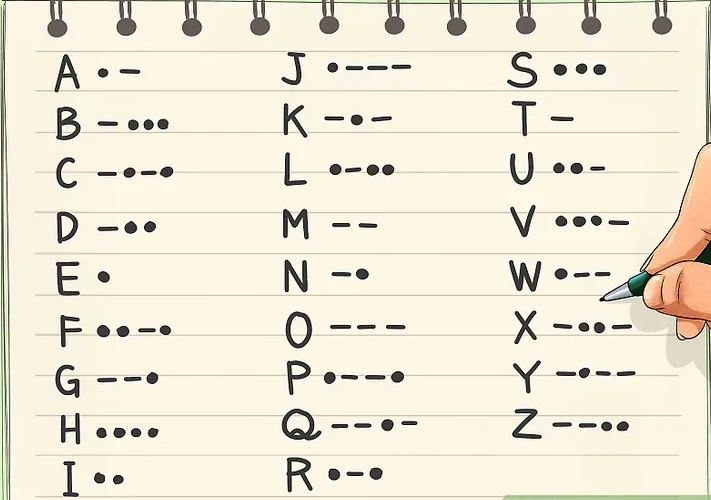
Morse code is one of the oldest forms of digital communication, invented by Samuel Morse and Alfred Vail in the 1830s. It represents letters, numbers, and punctuation using short and long signals, commonly known as dots (·) and dashes (—). While its earliest use was in the telegraph, Morse code later became vital in maritime communication, aviation, military, and amateur radio.
Even in today’s digital world, Morse code still fascinates learners, hobbyists, and professionals. Thanks to modern technology, you don’t need a telegraph machine to practice; instead, you can use Morse code translators — online tools and mobile apps that instantly convert plain text into Morse code and vice versa.
In this guide, we’ll cover everything you need to know about the best Morse code translators, their features, advantages, and how you can choose the right one based on your needs.
What is a Morse Code Translator?
A Morse code translator is a digital tool that:
- Converts text into Morse code (e.g., “HELLO” → ···· · ·−·· ·−·· −−−).
- Converts Morse code into text (e.g., ··· −−− ··· → “SOS”).
- Often supports audio playback, so you can listen to Morse tones.
- Some advanced tools add flashing lights, vibration, or downloadable audio.
These translators are widely used by:
- Beginners & students learning Morse code.
- Ham radio operators who use Morse (CW – Continuous Wave) for long-distance communication.
- Puzzle enthusiasts and cryptography fans.
- Emergency signaling learners since Morse is still recognized in survival situations.
Why Use a Morse Code Translator?
Before reviewing the tools, let’s understand why people still use Morse code translators today:
- Learning Aid – Makes it easier for beginners to memorize Morse code symbols.
- Amateur Radio (Ham) – Ham radio operators still use Morse (CW mode) for communication across long distances.
- Emergency Situations – “SOS” in Morse is still an internationally recognized distress signal.
- Cryptography & Puzzles – Morse code is popular in escape rooms, puzzles, and spy games.
- Fun & Creativity – People use it to send secret notes or unique tattoos/messages.
- Accessibility – Morse can be tapped, flashed, or sounded — making it useful for people with limited speech or mobility.
The Best Morse Code Translators (Online & Apps)
Here’s a breakdown of the top Morse code translators, their features, and who they’re best for:
1. TextToMorseCode.com
This is one of the most popular free online translators. It supports text-to-Morse and Morse-to-text conversions and offers sound and light playback. Learn Morse Code Alphabets Using the texttomorsecode site.
Key Features:
- Translate instantly between text ↔ Morse.
- Audio playback with adjustable speed.
- Flashing light signals to mimic real Morse.
- Works with multiple alphabets (Latin, Cyrillic, Hebrew, Arabic).
- Clean, easy-to-use interface.
Pros:
- Beginner-friendly.
- Offers both visual and audio learning.
- Mobile-friendly.
Cons:
- No offline mode.
- Limited customization compared to advanced apps.
Best For: Beginners and casual learners who want a simple yet effective translator.
2. Morse Code World Translator
Morse Code World is a dedicated website for Morse learners. Its translator is advanced, making it perfect for serious learners and ham radio operators.
Key Features:
- Translate text ↔ Morse instantly.
- Audio with adjustable WPM (words per minute).
- Supports Farnsworth timing (spaces characters further apart for beginners).
- Practice tools to improve speed.
- Full Morse learning resources.
Pros:
- Great for ham radio operators.
- Provides professional-grade training.
- Multiple customization options.
Cons:
- Advanced settings may overwhelm beginners.
Best For: Serious learners and amateur radio enthusiasts.
3. Dcode.fr Morse Translator
Dcode.fr is a cryptography and cipher-solving platform. Its Morse translator is simple yet powerful, making it popular for puzzles and educational purposes.
Key Features:
- Text ↔ Morse translation.
- Reference Morse alphabet chart.
- Copy results easily for puzzles.
- Useful for historical ciphers and codes.
Pros:
- Clean and simple design.
- Ideal for puzzle solvers.
- Free to use.
Cons:
- No sound playback.
- Limited features compared to Morse Code World.
Best For: Puzzle enthusiasts, students, and cryptography fans.
4. Cryptii Morse Converter
Cryptii offers a modern and stylish modular tool that supports Morse and many other codes (binary, Base64, ASCII).
Key Features:
- Converts text ↔ Morse instantly.
- Sleek interface with real-time preview.
- Supports multiple encodings beyond Morse.
- Results can be copied or shared easily.
Pros:
- Very flexible for coders.
- Beautiful modern design.
- Works across devices.
Cons:
- Lacks advanced Morse learning tools.
- More focused on design than training.
Best For: Tech-savvy learners and developers.
5. Online Tone Generator – Morse Code Generator
Unlike most translators, this one focuses purely on sound output, making it excellent for auditory learners.
Key Features:
- Generates Morse tones from text.
- Adjustable pitch and speed.
- Downloadable audio files (MP3/WAV).
- Ideal for listening practice.
Pros:
- Perfect for practicing “by ear.”
- Audio can be reused for training.
- Free to use.
Cons:
- No visual Morse display.
- Limited to sound generation.
Best For: Learners preparing for ham radio or auditory training.
6. Morse Code Translator Mobile Apps
If you want to practice on the go, apps like Morse Code Translator (iOS/Android) and Omni Translator are excellent options.
Key Features:
- Text ↔ Morse conversion.
- Flashlight signals (using phone’s LED).
- Vibration output for real-life simulation.
- Offline access.
Pros:
- Very portable.
- Flash + vibration simulation.
- Share results directly via SMS/social media.
Cons:
- Some features may require paid upgrades.
- Audio quality varies by app.
Best For: Students, travelers, and anyone who wants mobile Morse learning.
Comparison Table of Best Morse Code Translators
TranslatorFeaturesBest ForProsConsTextToMorseCode.comText ↔ Morse, sound, light, multi-alphabetBeginners, learnersSimple, audio & lightNo offline useMorse Code WorldText ↔ Morse, audio, Farnsworth timing, trainingHam radio, serious learnersProfessional, customizableComplex for beginnersDcode.frText ↔ Morse, cipher solverPuzzle solvers, cryptography fansEasy, freeNo audioCryptiiModular, supports multiple encodingsTech-savvy learnersStylish, flexibleNot training-focusedOnline Tone GeneratorMorse audio generator + downloadsAuditory learnersGreat for listening practiceNo visual outputMobile Apps (Omni, iOS/Android)Text ↔ Morse, flashlight, vibrationMobile usersPortable, offlineSome premium features
How to Choose the Right Morse Code Translator
When deciding which tool to use, consider:
- Purpose: Are you learning, practicing for radio, or solving puzzles?
- Features Needed: Do you need sound, light, vibration, or offline use?
- Ease of Use: Beginners should start with simple tools; advanced users need customizable options.
- Device Preference: Online websites are good for desktops, while apps are better for mobile learning.
Tips for Learning Morse Code with Translators
- Start Small: Learn a few letters (E, T, A, N) before expanding.
- Use Sound: Practice listening — Morse is primarily an auditory language.
- Practice Daily: Even 10–15 minutes a day improves memory.
- Use Farnsworth Spacing: Start slower with extra gaps between letters.
- Challenge Yourself: Try decoding without looking at translations.
Final Thoughts
Morse code is more than just a historic communication system — it’s a skill that combines history, cryptography, emergency preparedness, and fun. Whether you’re a beginner curious about secret codes or a ham radio operator perfecting your skills, Morse code translators are the best online source to convert text to Morse code.
- For beginners, TextToMorseCode.com offers the best balance of simplicity and features.
- For serious learners, Morse Code World provides advanced tools and training modes.
- For puzzle solvers, Dcode.fr and Cryptii are excellent choices.
- For auditory learners, the Online Tone Generator is unbeatable.
- For on-the-go practice, mobile apps with flashlight and vibration outputs are ideal.
With the right translator, anyone can master Morse code — whether for fun, learning, or real-world use.


